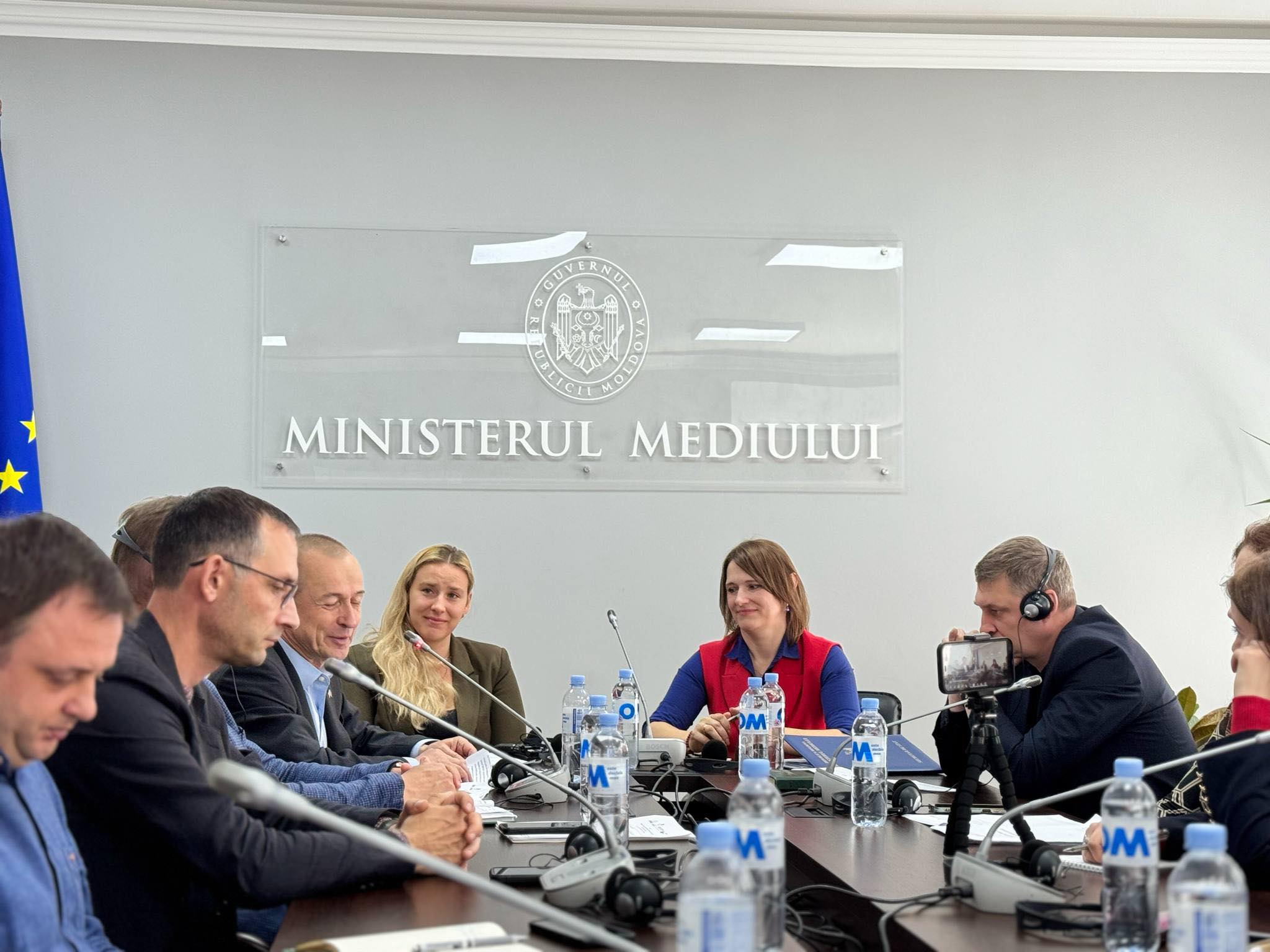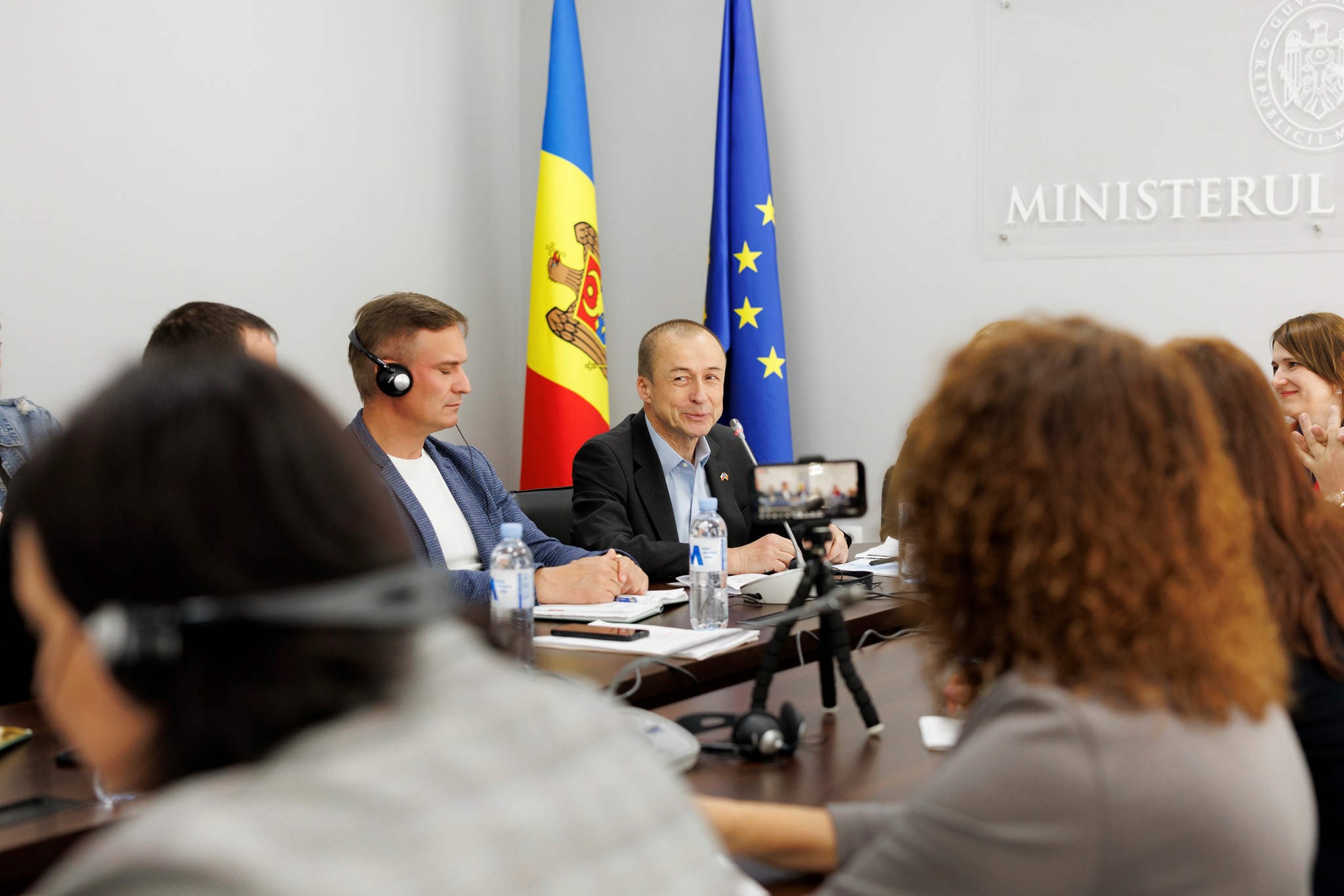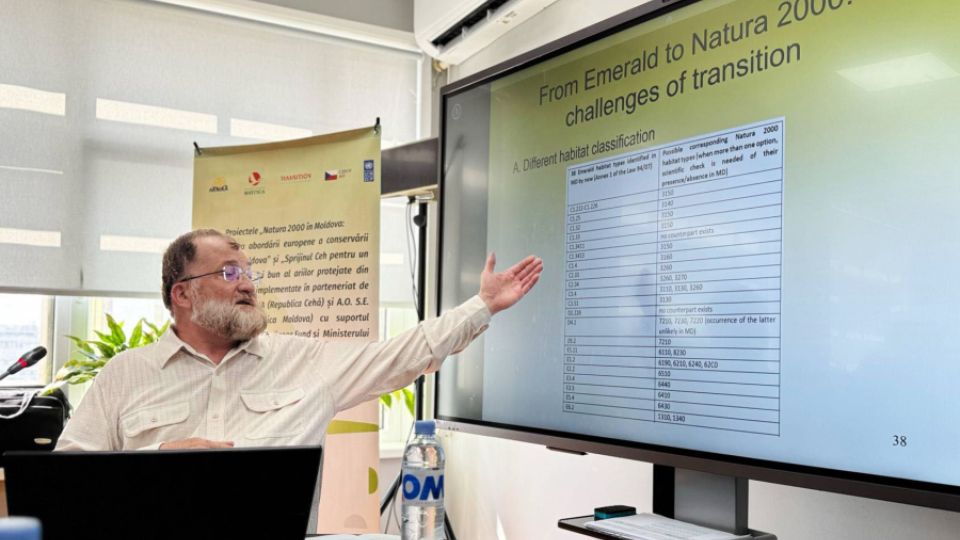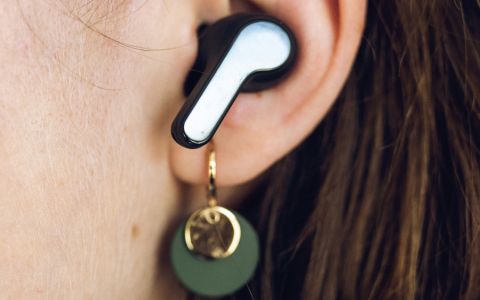CHIȘINĂU – Moldova has long faced challenges in the area of environmental protection. Notably, it should establish conditions for the establishment of the European Natura 2000 network and develop a consistent system for designating and managing areas of particular ecological importance. These were the main conclusions of an event hosted by the non-governmental organisations Arnika (the Czech Republic) and Biotica (Moldova), which brought together representatives of various institutions and a leading Czech and European expert on the Natura 2000 network.
Currently, the Moldovan system for protecting particularly valuable natural areas - wild flora and fauna and their natural habitats - focuses on the so-called Emerald Network as an older international framework of nature preservation. However, following the decision to open pre-accession talks between Moldova and the European Union in 2023, this may prove insufficient. The European Union's equivalent of the Emerald Network is the more demanding and strictly defined Natura 2000 network.
“For developing countries with limited institutional capacity, transitioning from the Emerald Network to Natura 2000 presents both opportunities and challenges. Natura’s effective habitat monitoring in protected areas requires consistent methodologies, technical expertise, and sustainable support structures. Strengthening local capacity and adapting monitoring approaches can help ensure conservation efforts remain effective and contextually relevant. Understanding the challenges of technical requirements and the appropriateness of administrative integration is important to ensure the system functions better in practice,” comments Elena Mărgineanu, PhD Lecturer of Environmental Law at ULIM University and representative of Biotica.
As discussed at Wednesday's seminar, Natura 2000 requires a more thorough approach, including the collection of accurate and comparable data on protected species of flora and fauna, the expert management of respective sites, and a complex institutional approach.
“Moldova’s potential refocusing on the Natura 2000 network would not only fulfil one of the conditions for joining the EU, but would also establish a proven, functional nature protection tool,” said the seminar’s keynote speaker, Petr Roth. A leading Czech expert, he has extensive experience in developing nature conservation systems in the Czech Republic and the Western Balkan countries, including integration into the Natura 2000 network.
At the start of the seminar, speakers from multiple institutions expressed their support for international cooperation, the further development of nature protection systems, and the enhancement of the professional capacity of the relevant authorities. Aliona Rusnac, State Secretary at the Moldovan Ministry of Environment, appreciated the international support of nature protection in Moldova and emphasised the country's commitment to implementing environmental policies that will safeguard natural heritage for future generations.
Recording of the whole event can be found HERE
Franciska Kirkegaard Flugt, Programme Officer for Green Transition and the Environment at the EU Delegation to the Republic of Moldova, added that "nature protection is not just a legal commitment and obligation for the EU, but a moral imperative", highlighting the strategic benefits of environmental policies for agriculture and other sectors.
 Ms. Kirkegaard Flugt and Aliona Rusnac at the event; Photo by Biotica
Ms. Kirkegaard Flugt and Aliona Rusnac at the event; Photo by Biotica
P. Roth gave the main speech of the event, presenting the results of his comprehensive analysis and detailing the differences and transitional opportunities between the current Emerald and the desired Natura 2000 network. His conclusions were summarised in a 20-page document, available on site and later online in Romanian and English, which was subsequently handed over to the Moldovan environmental protection authorities.
You can download Mr. Roth's presentation below - and the comparative analysis in English and Romanian here
"According to official proclamations, the Emerald and Natura 2000 networks are equal and fully compatible. However, this political statement is everything but true,” Roth wrote in the introduction to the document. “Simple conversion is impossible,” sounds the main result, with the expert detailing various issues. The Natura 2000 network places greater demands on the nature protection system than the existing Emerald network not only in the intricate area of legislation, but also regarding the expertise holding the system together.
Field data and active management are needed instead of mere conservation
The harmonisation of the Moldovan praxis with the EU’s one will thus require, for example, habitat classification and comparability of data about specific species in Moldova. A huge challenge also lies in the need for up-to-date and comprehensive mapping of biodiversity of the country identifying precious ecosystems and habitats of various species.
This requires a substantial allocation of official and professional resources, with biologists and similar experts carrying out extensive field research. "For a switchover from Emerald to Natura, additional scientific input is needed, based on the archiving of data from field habitat mapping. This should be carried out across the entire territory of Moldova, using a unified methodology," Roth’s analysis describes.
The areas protected under Natura 2000 should also have clear management plans that actively maintain the condition of ecosystems rather than leaving them to their fate – which is often the main practice today. This requires the areas to be clearly defined and identifiable. Some of the current 61 Emerald sites do not meet these requirements, particularly those around the Lower Dniester. The existing protection of this important biodiverse river area consists chaotically of 13 unconnected sub-areas that cannot be identified or properly managed in the field.
The seminar also emphasized the need for education, as with a more demanding system of protection for valuable habitats, the network of protected areas becomes a matter for society as a whole.
“The Moldovan environmental protection system has a long way to go if it is to harmonise with the European standards and thus fulfil one of the conditions for accession to the EU. We are therefore all the more pleased to be able to share our experience from the Czech Republic, where we have already undergone a similar process, including an almost unprecedented mapping of biodiversity across the country,” comments Pavel Pinkava, coordinator of Arnika’s project in Moldova.
Experience sharing as part of long-term international cooperation
Wednesday’s event was held as part of a joint project by Arnika and Biotica ”Natura 2000 in Moldova: Promoting the European Approach to Nature Conservation in Moldova”, which is supported by the Transition Promotion Programme of the Ministry of Foreign Affairs of the Czech Republic.
Adam Piňos, the Czech Republic's Deputy Ambassador to the Republic of Moldova, commented: “The Czech Republic has been assisting Moldova in a number of areas, starting from political support for the key integration efforts to offering development cooperation in areas such as border protection and water management.” He added that “have clearly demonstrated already its political will and institutional capacities to allign the country with the EU standards, and I am happy that the Czech expertise can make this transition possible.”
 Mr. Piňos giving his welcoming speech at the event; Photo Biotica
Mr. Piňos giving his welcoming speech at the event; Photo Biotica
The two non-governmental organisations have been working together for a long time. As well as their efforts to improve the environmental protection system in Moldova, they work with local communities to implement various environmental improvements. For instance, two community clean-up events were held in the Lower Dniester National Park in April this year, with over 60 people participating in Tudora and Vișoara.
Arnika and Biotica also collaborate in Moldova to provide long-term support to volunteer national park rangers, who, for example, received valuable equipment through a previous joint project. These joint efforts helped Moldovan rangers being integrated into the International and European Ranger Federation through international networking.
More information about the former activities of Arnika and Biotica in Moldova can be found, for example, here: https://arnika.org/en/countries/moldova/news-moldova
For more details, please contact Arnika’s international PR officer, Jan Kašpárek: This email address is being protected from spambots. You need JavaScript enabled to view it. / +420 770143103








